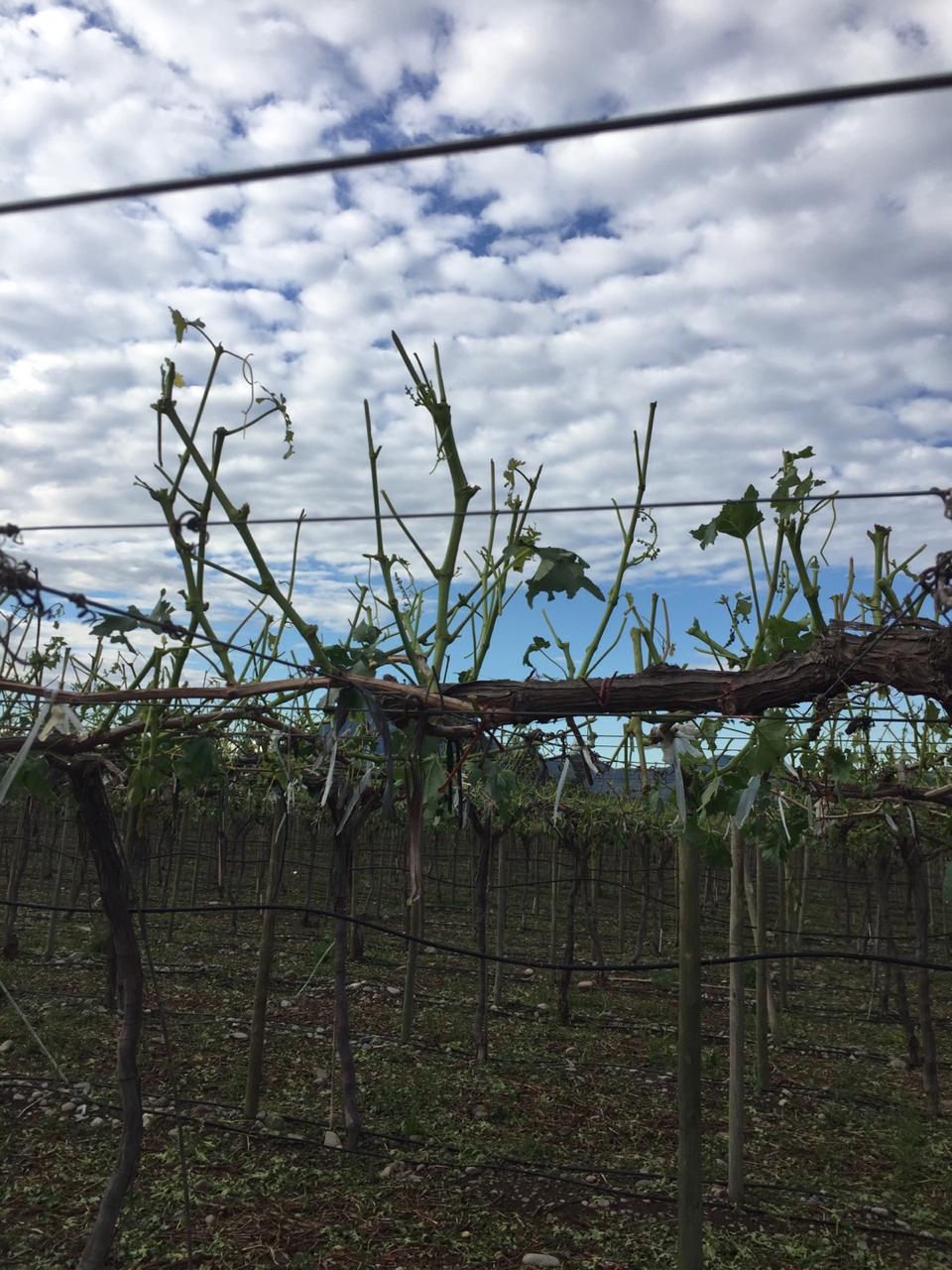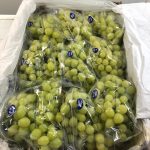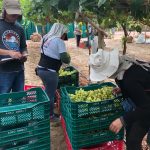Delays Through the Panama Canal
Posted on August 27th, 2023
The upcoming import fruit season faces a significant challenge due to congestion at the Panama Canal, a vital trade route for importing fruits and other goods into the United States. Currently, there are 154 vessels awaiting passage through the canal, and this congestion is exacerbated by ongoing drought conditions that have disrupted normal operations since spring. The wait time to cross the canal could be up to 21 days in some cases.
The Panama Canal is of immense importance to U.S. shippers, especially those heading to Gulf and East Coast ports. Being the largest user of the canal, the U.S. accounts for about 73% of its traffic, with 40% of U.S. container traffic passing through annually, carrying around $270 billion in cargo.
The congestion results from water conservation measures implemented by the Panama Canal Authority (PCA) in response to the drought. These measures have led to a reduction in booking slots for Panamax vessels, the largest ships capable of crossing the canal. The number of daily pre-booking slots has been reduced from 23 to 14. Additionally, the daily transit capacity of the canal has been adjusted downward to an average of 32 vessels per day, compared to the usual 34 to 36, forcing ships without reservations to wait.
This situation has prompted concerns about the upcoming import fruit season. The backlog of ships waiting to cross the canal could lead to delays and increased costs. Ships lacking reservations are compelled to wait, potentially causing disruptions in the supply chain. The reduced water levels also add complexity, requiring vessels to be lighter, which might lead to unloading and reloading cargo, further delaying shipments.
The backlog and uncertainty have prompted some shippers to consider alternative routes, such as the Suez Canal, which could add significant transit time and fuel costs to the journey. This could result in higher freight costs, longer lead times, and ultimately, higher prices for consumers.
Direct Source California Table Grapes
Posted on July 18th, 2022
Direct Source Marketing is proud to announce that we have started packing California table grapes in our private label. Below are pictures from our first Flames of the season.
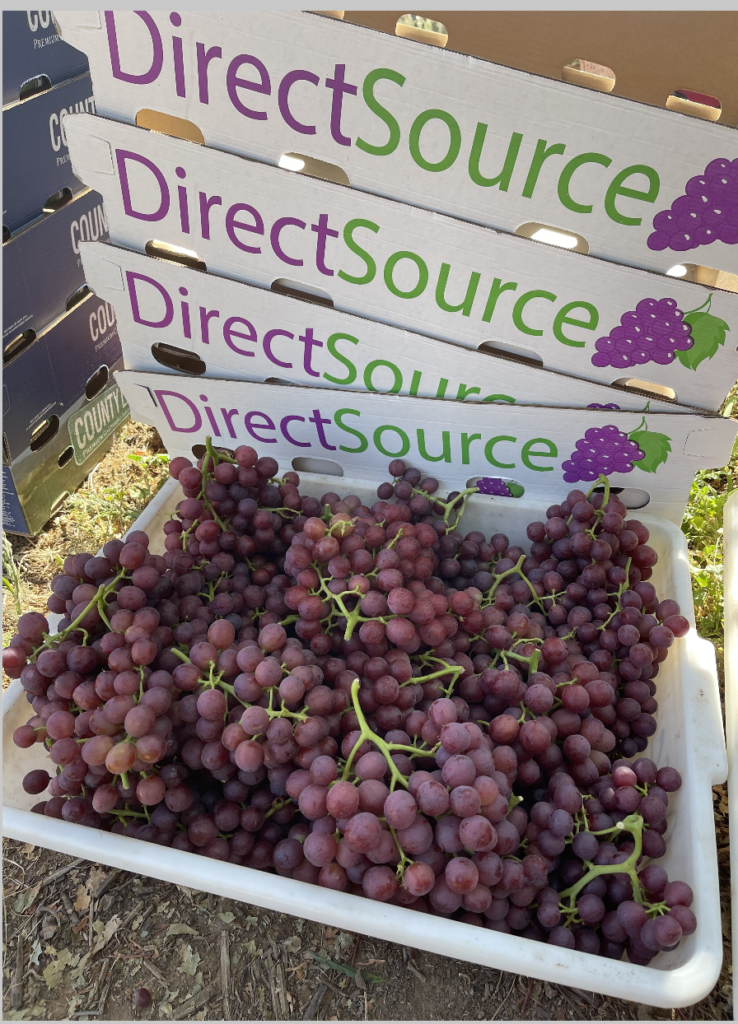
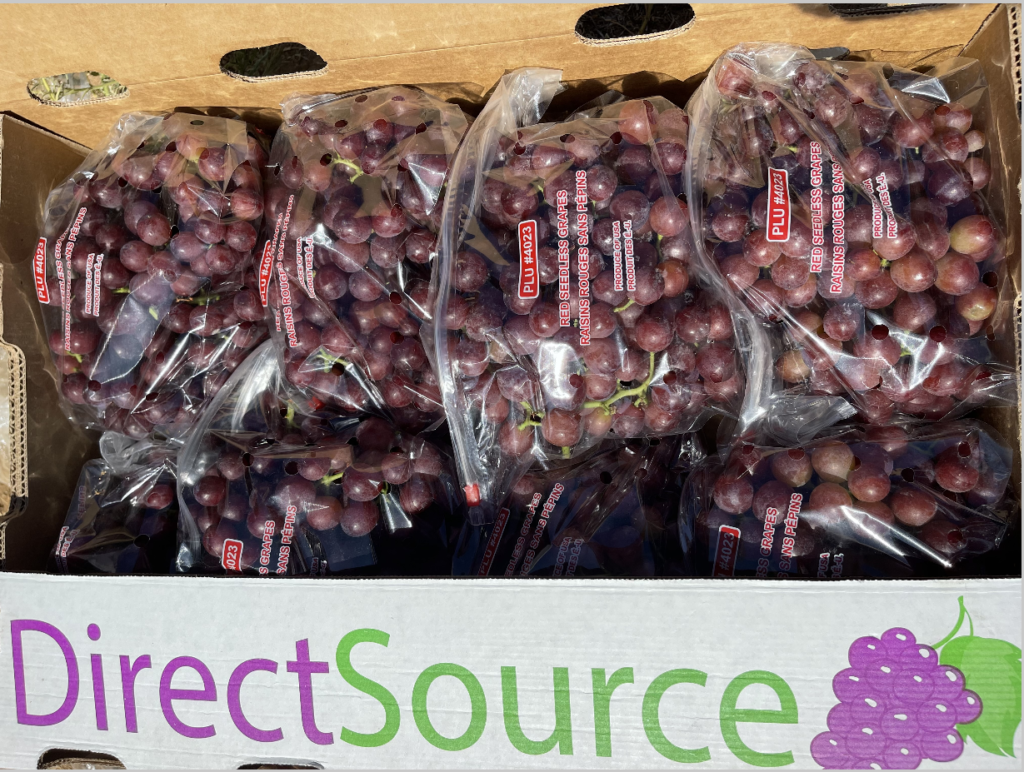
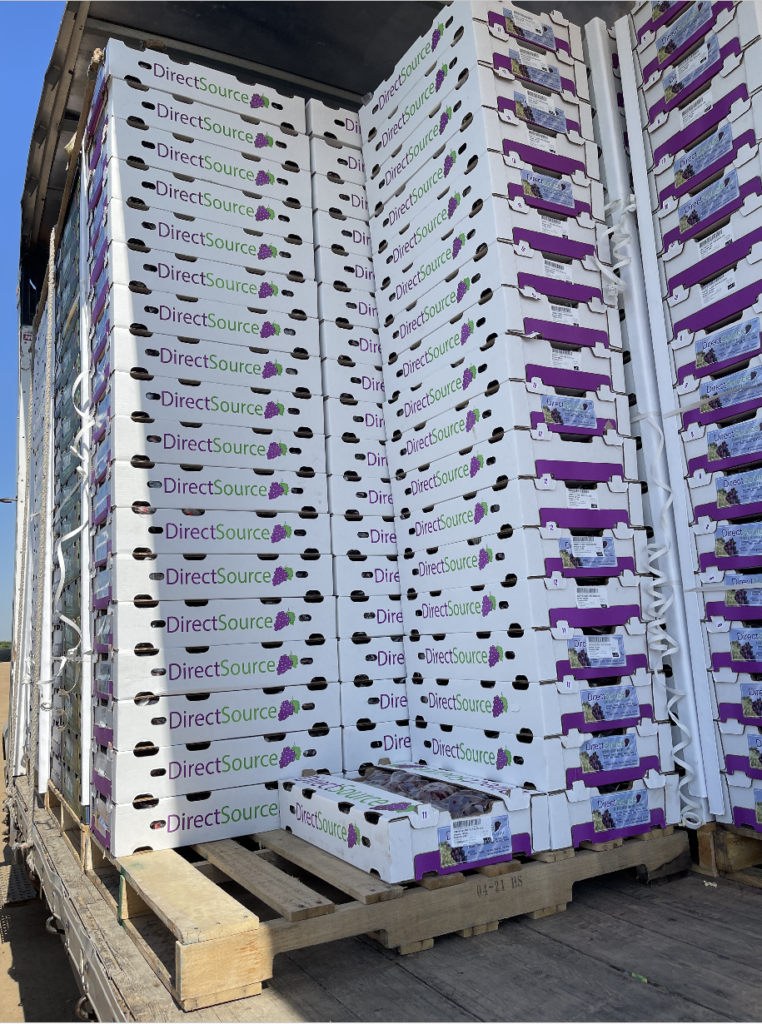
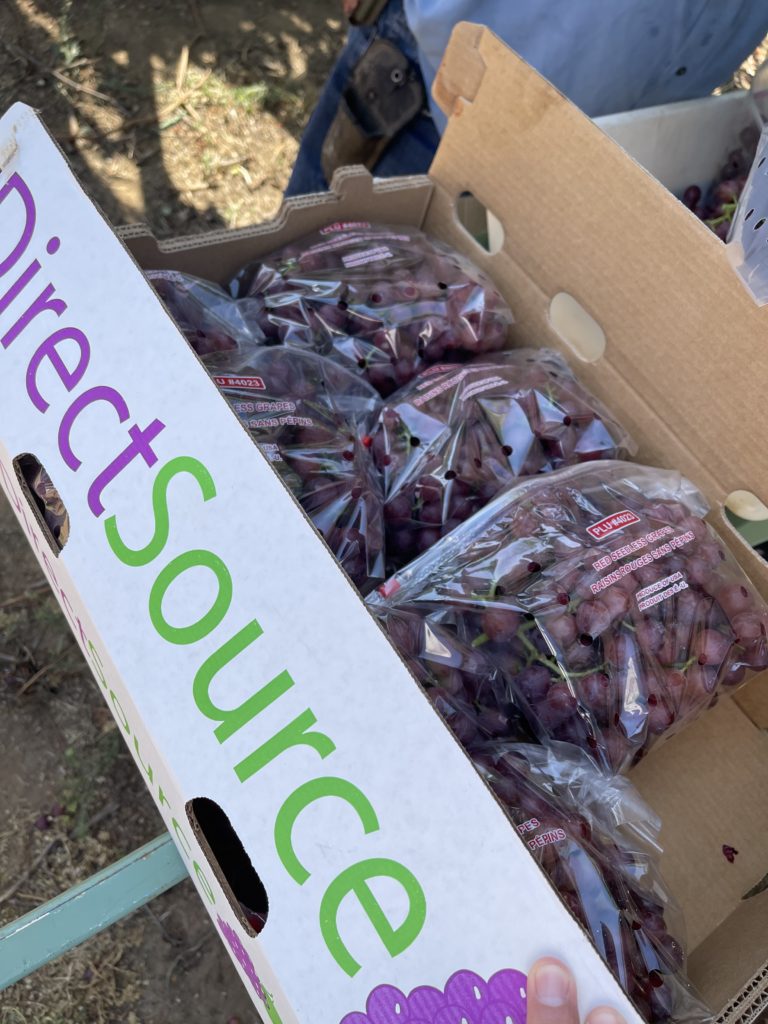
No End in Sight for Global Supply Chain Disruption
Posted on October 25th, 2021
Disruptions in the supply chain are not going away. Every sector of the transportation industry has been particularly hard hit since the pandemic started in early 2020. Massive dislocations are present in the container market, shipping routes, ports, air cargo, trucking lines, railways and warehouses. The result has created shortages of key manufacturing components, order backlogs, delivery delays and a spike in transportation costs and consumer prices.
As the holiday season approaches, the logistics industry is bracing for another jump in demand that could further cripple the supply chain. Every link in the chain needs to operate effectively to restore order in the system, yet each component has its own unique challenges to overcome.
A shortage of Commercial truck drivers across the country continues to hamstring the industry. Frustration with employment prospects, safety concerns, expanded unemployment benefits and having kids at home have contributed to drivers leaving the industry. The situation has become so dire that Politicians are exploring a myriad of options to aid the supply chain, including lowering the age of CDL drivers from 21 to 18 and tapping the national guard to help with port congestion.
Similarly, backlogs at truck and part manufacturers have made it increasingly difficult to service equipment already on the road. Waitlists for new tractors and trailers continue to grow and shortage of backlogged parts, including semiconductors, have caused further delays in delivery. Unfortunately, as we head into the holidays, expectations are for the situation to become worse, not better. Expectations are to see elevated transportation costs, disrupted capacity and interruptions in service for the foreseeable future.
Canceled Routes Contribute to Container Shortages
Posted on December 27th, 2020
As Covid-19 brought global trade to a standstill earlier in the year, many shipping lines were forced to cancel departures and reduce their services from port to port. With significantly more demand for ocean freight now, shipping lines are doing their best to reposition equipment, but logistically, it could take several months before we see normal service and consistent availability. A recent report by the maritime consulting firm Drewry acknowledged that the recovery in shipping throughout the second half of the year took everyone by surprise, creating uneven levels of activity. More directly, Peru continues to increase production across many agricultural categories, creating increased demand for refrigerated shipping. The recent labor stoppages have also impacted the shipping lines. Agricultural operations in Peru have now been shut down for two out of the past four weeks, leaving many shipping lines no choice but to leave port with boats half full. As growers in Peru try to get back to a sense of normal activity, there will be huge demand on the shipping lines to move cargo that has been sitting in cold storages. It’s more than likely that the produce industry will have to manage through these challenges well into 2021.
Striking Farm Workers Block Peru’s Main Highway
Posted on December 6th, 2020
Work stoppages and protests, which started in the southern agricultural region of Ica, spread quickly throughout the entire country last week, bringing the majority of all agricultural exports to a complete standstill. The unrest stems from an agri-law they say enables exploitation by agricultural firms throughout the country. Framed as temporary legislation when it was enacted in 2000, the Agrarian Promotion Law was extended last year until 2031. Labor organizers argue that the law doesn’t establish a maximum of working hours in a day, allows firms to recruit temporary labor in order to withhold commissions and allows for loop-holes for agri-businesses to avoid providing benefits to laborers. The law also gives tax incentives to growers, which have been responsible for growing agricultural exports within Peru from a few hundred million to nearly 8 billion since the law’s enactment. Negotiations involving representatives of the government, major agri-business, labor representatives and the clergy have yet to find common ground. With support from the police force, major highways have been reopened but the situation is still very unstable and the majority of farm workers are not willing to cross the line for fear of retaliation from strike organizers.
While there is validity to many of the worker’s claims, the lion’s share of abuses come from unregistered labor contractors that do not comply with the industry’s standard business practices. The majority of established agri-exporters, especially companies that export to the United States, are mandated and regulated by the fair practices and social compliance standards set by SMETA (Sedex Members Ethical Trade Audit). This should be a wakeup call for importers and retailers in the United States to continue pushing their agricultural partners in Peru for active social reform and compliance. Just as FSMA has become law, it’s just as important that social compliance become the standard for doing business around the world. At Direct Source Marketing and our Peruvian farming subsidiary Agro Direct, it has always been a top priority.
Over the weekend, the government abolished the law with promises of rewriting it with more favorable terms. Labor crews have tentatively agreed to return to work on the condition of continued progress. With hundred of millions of dollars influx, the government will be working diligently to remedy the situation in a timely fashion.
Reefer Freight Rates Spike 20%
Posted on August 3rd, 2020
Over the past four weeks, we’ve seen a major reduction in trucking capacity and a 20% spike in overall transportation rates. At first thought, one might suspect that the challenges were COVID related, but that’s only partially true. The problems facing the industry started last year in what Business Insider termed, “2019 Rocked By A Bloodbath,” after 2 large trucking companies filed for bankruptcy, leaving thousands of drivers out of work. At the start of 2020, there was already a shortage of equipment and drivers, but that deficiency wasn’t fully felt during the sluggish winter months. By March of this year, much of the nation was locked-down due to the ongoing health crisis, which again masked the mounting issues in the trucking industry. As the country continues to open in phases and a normal flow of business resumes, the demand for refrigerated trailers has increased exponentially. Unfortunately, in the current climate of financial uncertainty, we’re continuing to see more asset based carriers file for bankruptcy. It’s unclear how the nation’s $800 billion transportation industry will fare through the remainder of the COVID-19 crisis, but it’s certain that agriculture and all other sectors that rely on transportation will continue to be affected.
Direct Source Expands Its Farming Portfolio
Posted on August 26th, 2019
Agro Direct, a subsidiary of Direct Source Marketing is excited to have been recently licensed to produce Autumn Crisp Green Seedless, a highly regarded product from Sunworld Innovation. Autumn Crisp are in great demand globally and is known for its large size, snappy crunch and high sugar content. Agro Direct expects to have its first production by February of 2021. They will also be looking forward to their second crop of Sunworld Superior Green Seedless as well as Red Globes for the Asia market. Agro Direct first started farming sweet onions in Villacari Peru, and still produces some of the finest quality Century variety sweet onions in the country.
Optimistic Outlook for March & April Strawberry Supplies
Posted on February 24th, 2019
California strawberry shipments were effectively sidelined the entire month of February as persistent rain events hampered overall production in Oxnard. The additional precipitation and cool weather have delayed harvest schedules but helped overall plant health and fields are now primed and staged for consistent production as we head into the month of March. Once shipments from Mexico and Florida wrap up and California fields come fully online, retailers will jump right in as there is always a clear preference for California fruit. Although there is good volume expected, overall strawberry acreage in Oxnard is lower in comparison to previous years. Growers and shippers in the region may not be able to support the entire industry early in the transition, and we could see FOB’s spike in the short-term until supply and demand equalize. Santa Maria fields aren’t expected to come online for another 3-4 weeks, leaving growers and shippers in Oxnard the sole task of supplying the industry through the month March. Once Santa Maria and Oxnard are both in full production, there should be excellent volume to support promotional activity through the month of April.
Packing First Peruvian Superiors of the Year
Posted on January 7th, 2019
Agro Direct, a division of Direct Source Marketing, is excited to be packing its first seedless grapes of the year from our vineyards in Ica, Peru. Overall quality and size on these Superior Green Seedless are excellent for a vineyard that is only 14 months old. Agro Direct will be shipping volumes to both the US and Korean markets this year and will then look to harvest significant volumes of Red Globes. This is an exciting project as Direct Source Marketing is positioning themselves with a vertically integrated program to expand business opportunities in the US market.
Growers in Chile Still Assessing Damage from Last Week’s Hail Storm
Posted on November 19th, 2018
Last week Chile was hit with one of the most severe and wide-spread hail storms in recent history. The storm affected an area of the sixth region from Rancagua (60 miles south of Santiago) to Parral, which is 270 miles south of Santiago. Hail stones the size of marbles fell with extreme impact, severely damaging a myriad of agricultural commodities including stone fruit, grapes, berries and many others. While it is still too early to understand the full impact of the storm, information on specific commodities has started to emerge.
Beginning reports are speculating between 20%-30% of overall cherry production could have been affected and could rise over 30% as more information becomes available. Asian exports are expected to drop significantly as only the best quality fruit is selected with little to no psychical blemishes. Grapes and stone fruit look to be in better shape, although preliminary reports are only now starting to funnel in. The extent of overall damage is high dependent on the farming location as some areas received greater hail coverage than others. The industry will have to wait until a survey can be completed to ascertain the full impact of last week’s storm on the upcoming import season.
